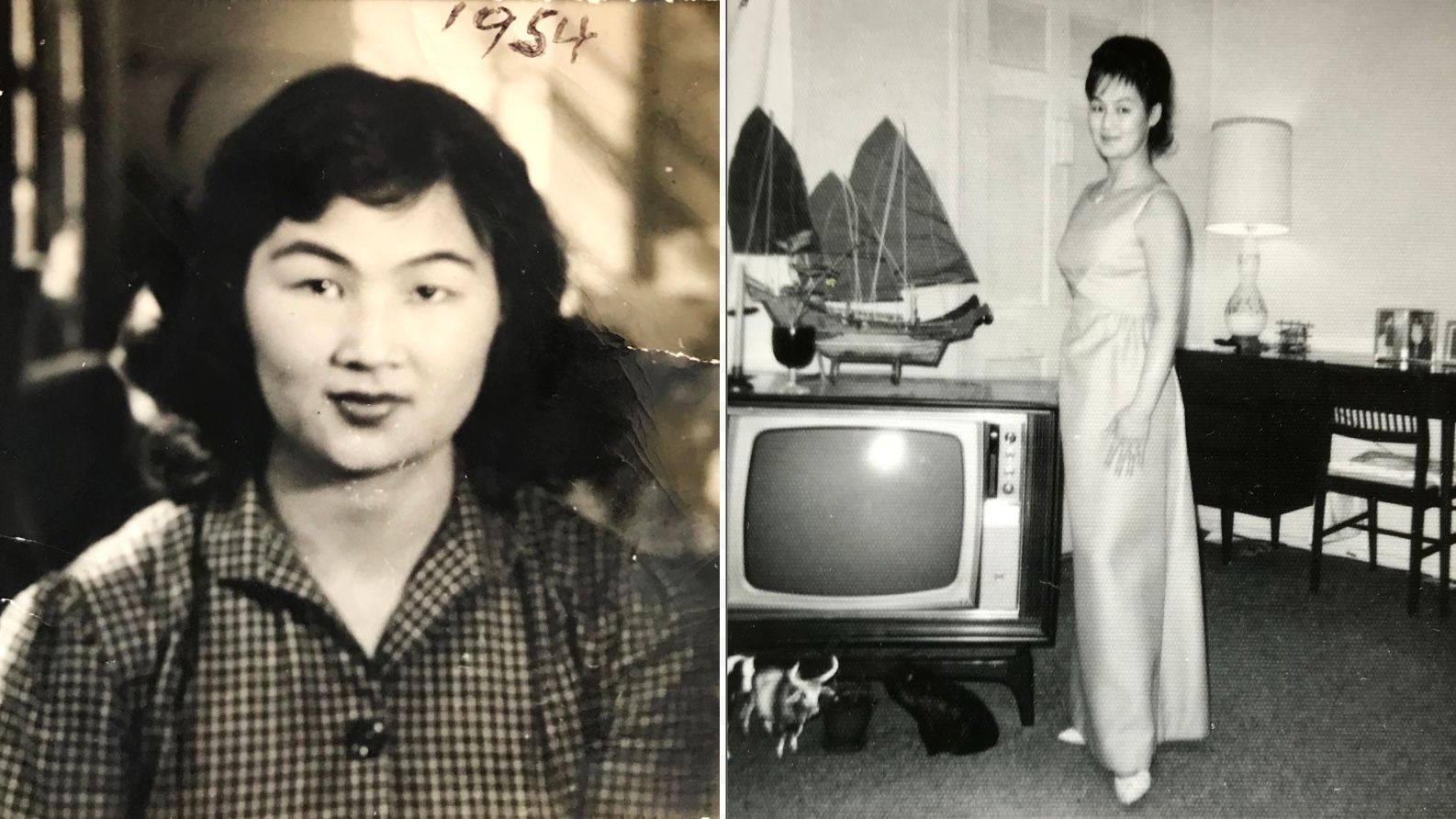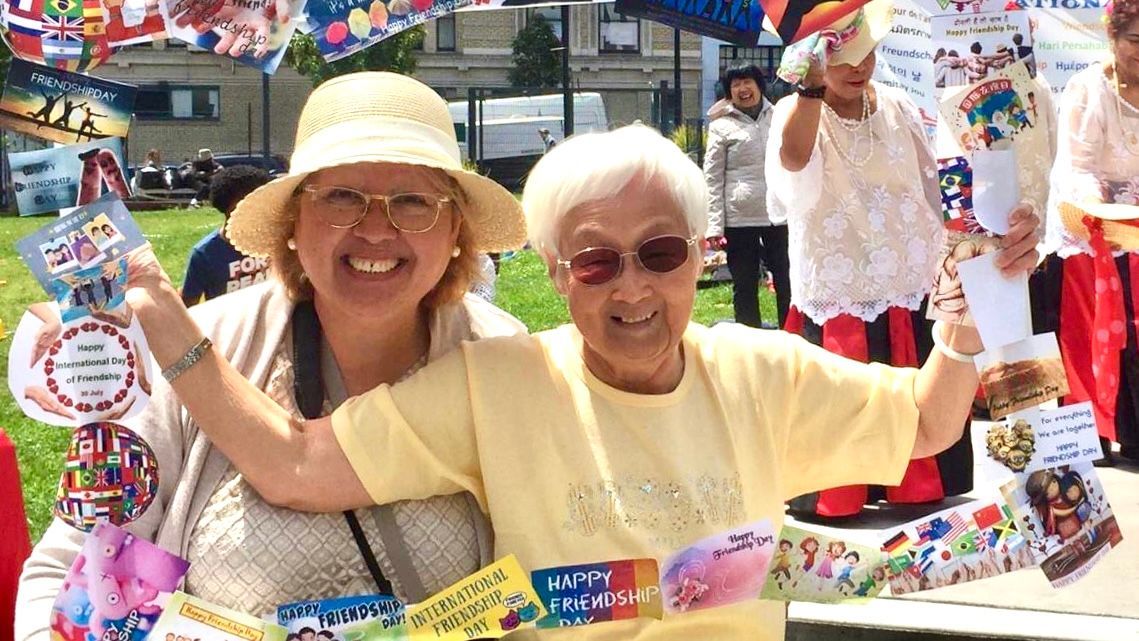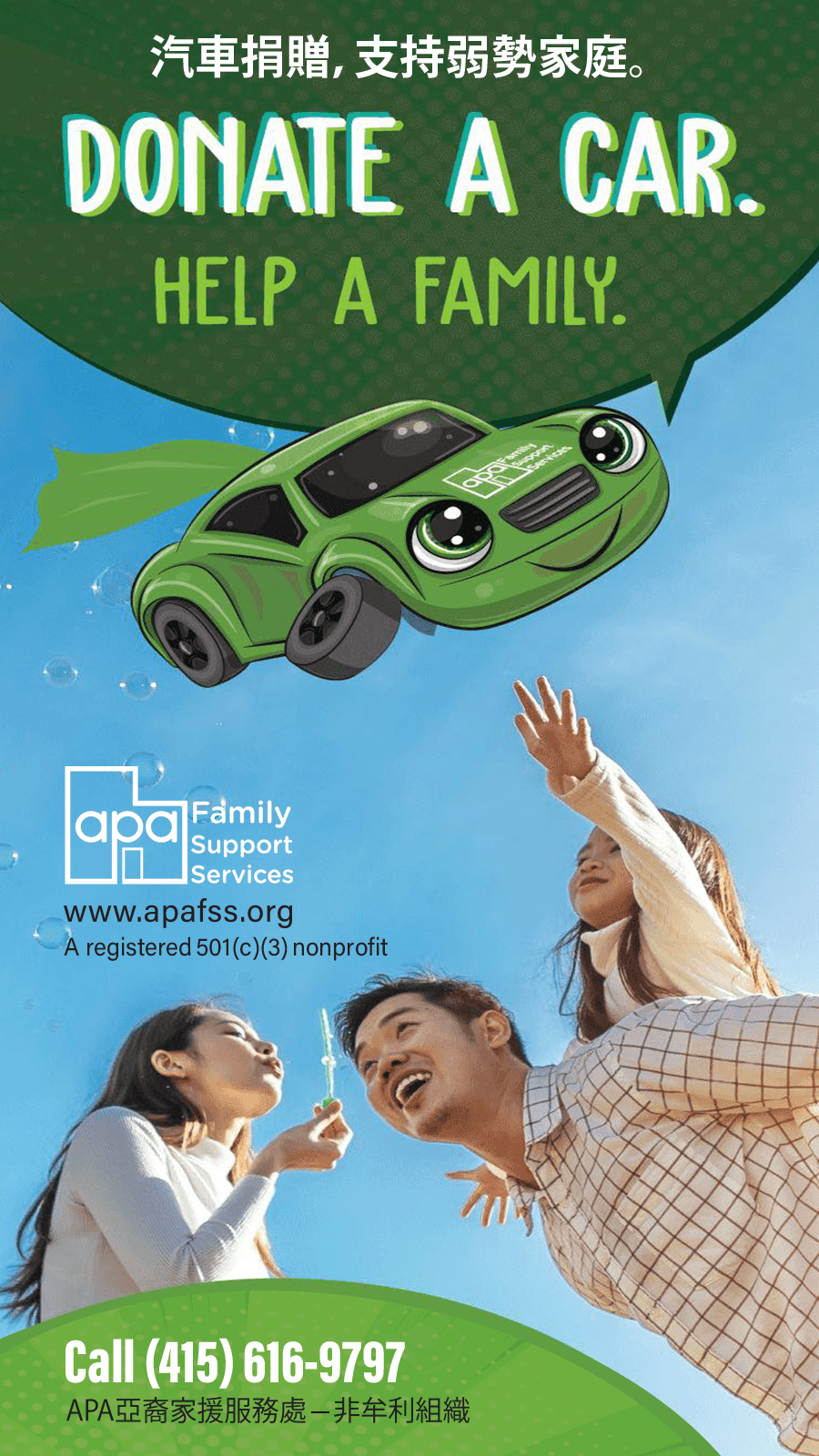Remembering amazing Lady Fighter: Connie Moy

Editor's Note:
Tenderloin community leader Connie Moy passed away on November 17, 2023. The memoirs was verbally narrated by Ms. Moy in 2018 and written by Siu Han Cheung in Chinese and English. Moy and Cheung co-founded the Tenderloin Chinese Rights Association (TCRA) in 2014 to advocate for seniors and tenants in Tenderloin. Cheung has joined Tenderloin Neighborhood Development Corporation (TNDC) as Community Outreach Services Coordinator since 2009.
(SAN FRANCISCO) Our community hero Connie Moy passed away on Friday, November 17, 2023. We deeply miss Connie! We love Connie! Connie did not want a funeral service, no memorial, no celebration of life… cremation, simple… too humble… The following is her story…
Connie Moy was a long time tenant at the Tenderloin Neighborhood Development Corporation (TNDC). She came to the United States from China after World War II.
After working hard to make a living for her family and children for 50 years, Connie retired and resided at Maria Manor, one of TNDC’s senior housing facilities in Tenderloin, for over 27 years.
In the 19th century, America was undergoing rapid industrialization, leading to labor shortages in the mining and rail industries. Chinese immigrant labor was often used to fill this gap, most notably with the construction of the First Transcontinental Railroad leading to large-scale Chinese immigration.
These Chinese immigrants were despised because they took the jobs from whites for cheaper pay, and the phrase Yellow Peril, which predicted the demise of Western Civilization, because of Chinese immigrants, gained popularity. This discrimination apexed with the 1882 Chinese Exclusion Act, which banned Chinese immigration to the United States. It was the first time that a law was passed to exclude a major group from the nation that was based on ethnicity and class.
Connie said a large number of middle-aged American men went to China to meet and marry young Chinese women. Connie was one of those Chinese women who came to this country through marriage.
Connie was born in China. After World War II, life was very tough for Connie and her family in China. Hoping to bring her family a better life, Connie decided to look for a way out of China and later moved to Hong Kong.
After arriving in Hong Kong, Connie was introduced by a matchmaker to meet an American soldier whom she had never met prior. He was Connie's future husband. They got married in Hong Kong. Connie was boarding a U.S. military naval ship coming to the United States. It took 32 days.
Connie arrived in the United States in 1947 and first settled in Mississippi with her husband. “Racial discrimination had existed so profoundly there. All people of color had been separated from the whites. We, Chinese, and Africans were not treated equally," Connie said.
"When riding the bus, we could only sit in the back seat, we could not dine in restaurants with whites. When our children were born, we couldn't go to the hospital of whites. Our children couldn't enter the school of whites. Most Chinese parents joined forces to create Chinese schools to teach our children," Connie said.
"My husband was born in a military family but had always been Chinese. It was also very difficult to find a job after he became a veteran,” Connie recalled. “Fortunately, my father-in-law opened a small shop to stay alive. A few years later, our five sons and two daughters were all born healthy and lovely. In search of another opportunity, our family decided to move to New York.”
Moving from New York to Reno in later years, Connie found a job as a professional poker dealer in a casino in Reno, Nevada, in 1959.
"One day, an African American came to my table. I asked my boss what I could do. The boss told me to only send the cards to the whites and skip the African American," Connie said.
"Because African Americans couldn't enter the white casino at that time, they could only play at the China Club or the Cosmo Club Casino. Racial discrimination was very serious,” Connie added. "I would like to thank Dr. Martin Luther King. If he did not fight for the rights for all people. We Chinese people would never be treated equally."

Connie cited the following Golden Sentence of Dr. Martin Luther King to pay tribute to him:
“Power without love is reckless and abusive, and love without power is sentimental and anemic. Power at its best is love implementing the demands of justice, and justice at its best is power correcting everything that stands against love.”
Connie retired after working for 30 years. Tenderloin is a community where she could afford to rent. She lived in Maria Manor and enjoyed her retirement.
In 1999, the owner of Maria Manor sold the building to a company from Los Angeles. Connie received a letter from the new owner who wrote, "All tenants must move out in one year." Most households in the Maria Manor building were low-income, retired or people with disabilities. It was hard for them to find other affordable homes. All tenants were very worried and sad every day.
Days slipped away, three months before the deadline, Connie and four other tenants went to San Francisco City Hall seeking help. They waited outside the Mayor’s office and hoped that then-Mayor Willie Brown could meet them. They stayed in the hallway area waiting for five, six or seven hours every day.
During the final month prior to the deadline to move out, they thought there was no hope. One day when Mayor Brown returned to the office and saw Connie and other tenants crying, he stopped and invited them into his office. Mayor Brown immediately met with the new owner and told them to leave San Francisco.
A month later, TNDC took over the management and bought the Maria Manor. Connie and all the residents had stayed at Maria Manor since then.
Connie often served as a translator for her Cantonese-speaking-only neighbors, who might otherwise become isolated in their apartments. She was voted by her neighbors as the first President of the Tenderloin Chinese Rights Association (TCRA) when it was founded. It has been a social self-help tenant group in Tenderloin.
She led the TCRA members to gather at the City Hall for hearings, demonstrations, etc... She was a true fighter advocating for her members and the community.
It was amazingly beautiful that Connie received triple recognitions in March 2018. The City and County of San Francisco honored Connie with the Women's History Month Award. Connie was recognized by the San Francisco Commission on the Status of Women as one of the honorees at its annual Women’s History Month celebration. Connie was awarded the district's Women History Month Award at the State Legislature nominated by then-Assemblymember David Chiu.
“These awards are not just for me. They represent the glory of the TCRA. If I don't have the support from all members, I am not able to receive all the honors. I am proud of all members of the TCRA," Connie said.
“Show strength, build a healthy community is our responsibility. Millions of people resolutely unite and clearly support each other. Give impetus to the masses of the community and fight for rights and interests together. Unite with the power of the elderly, everyone enjoys the leap year.” This was always Connie’s goal to organize the seniors.
One of Connie’s favorite activities in Maria Manor was to engage and socialize with her neighbors in TNDC’s weekly coffee hours every Tuesday and Thursday. Tenants and neighbors gathered in the dining room to chat and play games. “It gets us out of our rooms,” Connie said. “In the afternoon from noon to 5 pm every day, several mahjong games are playing among us the tenants.”
San Francisco is one of the metro cities in the country with the largest population of seniors. It is expected the senior population will be doubled by 2030. Creating more housing is critically important. Over 40% of TNDC residents are seniors.
"I have enjoyed much by living in Maria Manor. Everyone here is my friend. The building and the management team are beautiful. It is also at a great location. Thanks to TNDC for providing housing for the homeless community. Helping the working families staying in San Francisco and finding housing for everyone is the goal of TNDC. I appreciate TNDC's great service for all of us," Connie said with gratitude.
- San Francisco Real-Time Investigation Center (RTIC) equipped with drones and advanced technologies now fully operates to help keep the city safe
- The community blessed for two Chinese American Police Chiefs in a row to lead San Francisco Police Department
- Opinion: My concerns about negative impact of road constructions to traffic and communities in SF’s Chinatown and Sunset
- Tech entrepreneur & political advisor Saikat Chakrabarti runs for Congress to fill Nancy Pelosi’s House seat
- Kenneth Binder appointed as San Mateo County Sheriff for a 3-year term
- U.S. Representative Nancy Pelosi to retire in Jan 2027 after 40 years in Congress representing San Francisco
- Covered California annual open enrollment runs through Jan. 31, 2026 for health insurance with subsidies for most enrollees
- New federal and state rules on eligibility of public benefits to affect undocumented, non-citizen immigrants from Jan. 1, 2026






